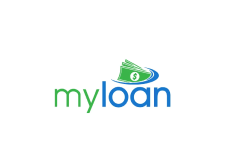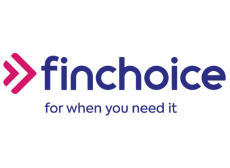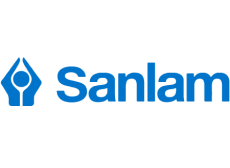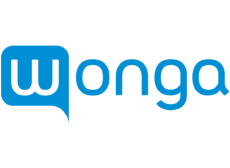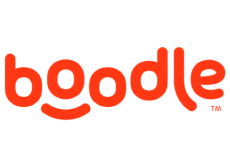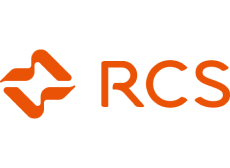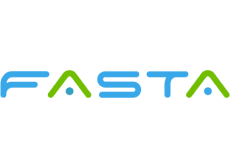Best Medical Loans Of 2024
Considering the high cost of health care in South Africa, securing medical loans is a necessity for many South Africans. If you are an individual or a business, you have many options for financing your health care expenses. Depending on your needs, you can choose from secured and unsecured loans. Whether you need a dental procedure, an eyeglasses or a cosmetic surgery, you can find financing options to suit your needs.
Optometrists and patients benefit from medical loans
Optical eye care, vision therapy and low vision rehabilitation. These are the three pillars of the optometry industry. The field is expected to see growth at a rate of 4% over the next five years. Optical health care is a highly specialized health care profession. In fact, it is a subspecialty of medicine, as it is closely related to ophthalmology and otolaryngology. It is also home to some of the most cutting edge technology in the field. In fact, it is the home of the first optometric center of excellence in the world.
While a good portion of this new profession’s revenue comes from pharmaceuticals and other non-ophthalmic health care services, optometrists are expected to see an average increase in demand over the next five years. This is good news for patients and their wallets.
While there is not much to be said about the job prospects for new grads, it is a given that this highly specialized field will be on the upswing for a while. The best part is, most schools have their own student loan programs. You can save yourself thousands of dollars in tuition over the course of your career.
Securing or unsecured loans are available
Getting a secured or unsecured medical loan is a good idea if you’re suffering from some form of medical debt. These loans can be obtained via a variety of methods, including online lenders, brick and mortar banks, and credit unions.
Securing medical loans can be used to pay for out of network healthcare expenses or to consolidate existing medical debt. These loans come in various shapes and sizes, so be sure to read the fine print before signing on the dotted line. This is particularly true if you’re taking out a medical loan from a bank, as their policies may be more strict than your local payday loan lender. These types of loans can come with a price, and if you’re not careful you may end up paying for more than you bargained for.
There’s a reason for this: unsecured loans have a reputation for racking up high interest rates, which can quickly snowball into a mountain of debt. In order to keep your credit score on the upswing, you may want to consider a secured loan in order to pay off your medical debt. Secured loans also come in various shapes and sizes, and may come with a lower interest rate than their unsecured counterparts.
Primary health care re-engineering is at the core of revitalising and strengthening the South African health system
‘Re-engineering’ primary health care is an important component of the health transformation process in South Africa. Primary health care reengineering involves a series of challenges, including decentralisation, intersectoral collaboration and ensuring effective community participation. These challenges are important in order to ensure that the district health system is effective, and that community members are involved.
The key stumbling blocks that have been identified include inadequate political commitment, inadequate staff motivation, low skills levels and a lack of managerial capacity. Other challenges include inequities in resource allocation, poor quality of services and inequalities in coverage.
The Re-engineering Primary Health Care Initiative is a national effort to decentralise primary health care. This is intended to ensure that people living in communities have access to high quality primary health care services. The implementation of the Initiative has shown some positive effects, including increased access to health care. However, the implementation has also revealed some challenges.
One of the challenges is that many district hospitals are poorly coordinated with PHC services. In addition, there is a critical shortage of key health personnel. These challenges limit the sustainability of district health services.
Re-engineering primary health care in South Africa requires strong leadership. There should also be an effective decentralization process, and community participation is important in order to increase health coverage.
Covid-19 pandemic was ‘a defining moment’ in healthcare
During the Covid-19 pandemic, health care leaders learned several important lessons about the weaknesses of our healthcare system. It showed us how important it is to build stronger, more flexible, and sustainable health care systems. This, they say, will better protect us from future health emergencies.
The pandemic highlighted the need to protect those who are most vulnerable, such as elderly persons. The older population is more vulnerable to severe symptoms, and they also have more specific needs in a health crisis. In low-income countries, older persons are at risk due to the lack of social protection and health services.
The pandemic has also revealed pre-existing health inequalities. For example, African American populations are more likely to suffer from serious illness, including the Covid-19 virus.
The pandemic has also highlighted the need to address inequalities within our social services system. These include access to transportation and healthcare. It is also important for governments to ensure equal access to services.
Another challenge facing healthcare in low-income countries is that they lack the resources to provide healthcare. They need to make a significant financial investment in a stronger health system.
Another important lesson learned from the pandemic is the importance of a value-based system. This system looks at longitudinal outcomes for patients and aims to provide them with better care.
National health insurance UHC financing reforms compare and contrast with the situation on the ground
During the G20 Finance and Health Ministers meeting, hosted by the Presidency of Japan, in June 2019, the call for a stronger and more effective financing of UHC in developing countries was made. This is in line with the recently adopted Political Declaration on UHC, which was unanimously adopted by member states. Despite these commitments, there has been some concern that the existing health financing system in some countries will not be able to generate the resources needed to advance UHC goals.
It is therefore important to compare proposed national health insurance UHC financing reforms with the situation on the ground. This comparison is based on a review of key documents, including governmental financial reports, progress reports on UHC, the mid-term report on universal health coverage, and the results of the World Bank’s global survey of appropriate UHC financing.
The results indicate that countries that have introduced national health insurance (NHI) are more likely to achieve UHC goals than those that have not. However, implementing NHI requires that governments create an enabling environment.
One potential stumbling block is corruption. Another is the lack of trust in public institutions. Similarly, the regressive aspects of value added tax may also pose a challenge.
Incred Medical Finance platform for financing medical and cosmetic surgery procedures
Whether you are in need of cosmetic surgery or medical treatment, Incred Medical Finance offers you financing options that suit your needs. Through their online application, you can apply for a R50 000 loan with a loan amount of between R10k and R150k. They also offer ABSA loan terms that range from 6 months to 36 months. The company’s website claims a quick approval process, and they debit your bank account monthly. The company also offers promotional financing options, which may last up to 24 months. If you pay off the balance during the promotional period, you can avoid interest charges.
You can also apply for a credit card, which is a healthcare credit card that you can use to pay for medical expenses. The credit card can be used at plastic surgeon’s offices, and they may also offer promotional financing. You can apply for the card online or by phone.

